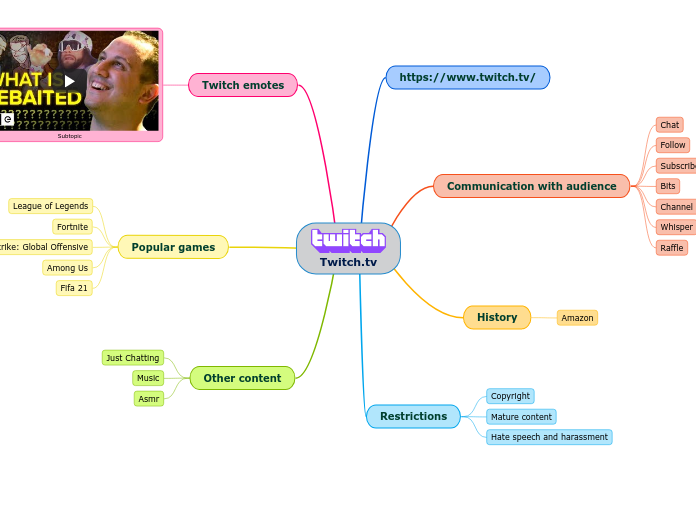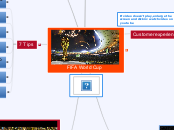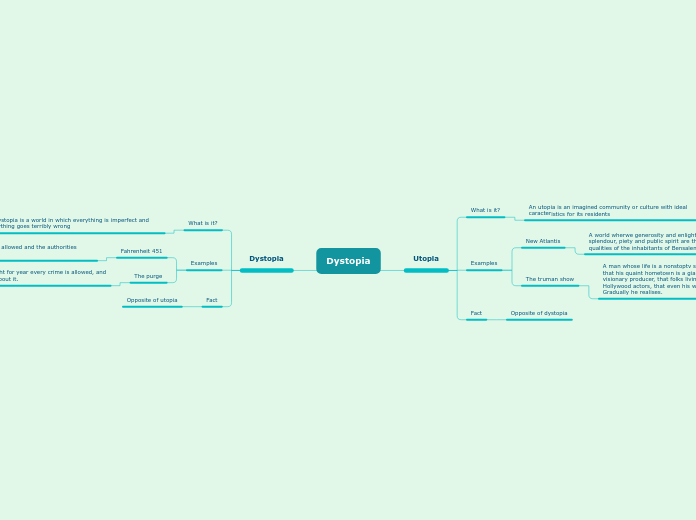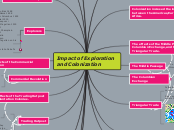Nazi Germany 1933-1945
Women
Prominent women
Gertrude Scholz-Klink
Head of the Nazi Women's bureau
Leni Reifenstahl
High profile film producer
Limitations
Discrimination against women
applicants for jobs was encouraged
Married professional woman was
forced to give up their jobs
During 1930s, women had to start working
They had to continue with their
family's responsibility
Nazis were a male-dominated organization
Many women agreed with it
Hitler offered finantial incentives for married
couples to have at least 4 children
If couples got 8, they would
get a "Gold cross"
Couples were given priviledge
seats at Nazis meetings
Young people
Youth movement against Hitler (not
political opponents of the Nazis)
The Edelweiss Pirates
Nazi's intervention
Pirates helped to shelter army
deserters and escaped prisoners
Stole armaments and
attacked the Gestapo
12 Pirates were hanged in 1944
Pirates could be arrested or ignored
Future workers and soldiers were needed
Gestapo broke up 28 groups
containing 739 in 1942
Much freer towards sex
Sang songs to mock Germany
Aged between 14 and 17
Working-class teenagers
(boys and girls)
The "Swing" movement
Talked about and enjoyed sex
Accepted Jews at their clubes
Listened to English and American music
Middle-class teenagers
Schools made children be loyal to Hitler
Parents were less loyal thay their children
Propaganda, culture
and mass media
Dr. Joseph Goebbels, Minister for
Englishtement and Propaganda
Believed in Hitler as a saviour
Used every resource to make
poeple loyal to Hitler
The 1936 Olympics
Great opportutnity to
Show Germany as a modern,
civilized and successful country
New technology was used
A new stadium was built
Show Aryans were superior
USA boycott the games against the Nazis
Germany included one Jew in their team
Great propaganda within
Germany and internationally
Media
New technology
Cheap radios were sold so people could listen to Hitler's speeches and Pro-Nazi messages everywhere
If poeple coouldn't afford radios
Loud speakers were placed in public areas
Jazz music was banned because it was "black"
music. Black people were conidered inferior
Posters proclaming the success of Hitler
and the Nazis were posted everywhere
Films and commercials had to
carry a Pro-Nazi message
Foreign films were avoided
Paintins should promote the Nazi message
Books should promote Nazi message
High-profile "Book-burning" in 1933
The Nuremberg rallies
Took place every summer
Public event where bands, marches, flying
displays and Hitler's speeches were shown
He wanted others to believe this too
Decided what German people
should or should not hear
Churches
Little opposition between
Nazis and Protestants
Exceptions
Dietrich Bonhoeffer
Hanged in April 1945
Arrested in October 1942
Helped Jews escape from Germany
Involved with members of army's services
who were secretly opposed to Hitler
Preached against the Nazis
Gestapo stopped him in 1937
Helped Niemöller
Pastor Martin Niemöller
Created an altrnative Protestant
Church to the Reich Church
Spent 1938-1945 in a
concentration camp
Catholic Bishop Galen
Wanted Nazis to stop killing mentally
ill and physically disabled people
Nazis couldn't silence them
Hitler created an alternative church
to unite all Protestant Churches
Reich Church
Catholic Church
Concordat with Hitler in 1933
Church must stay out of politics
Causes of little opposition
Propaganda
Hitler's image was
perfectly mantained
The July Bomb plot
Some army officers
wanted to kill Hitler
The plan failed
Nazis took revenge
killing 5000 people
Respected even when Germany
was loosing the war
Bad news were desguised
with propaganda
Economic fears
Buisnesses feared to go bankrupt
Bosses and workers feared to loose their jobs
Couldn't express opposition
Nazi Successes
German's support
Consequence
Germans felt they were a
powerful country again
Causes
Hitler's success in foreign affairs
Discipline was brought back
Restoring traditional values
Economic recovery
Nazis in control
Concenration capms
Ruled by SS Death's Head units
Anti-Nazi citizens were sent
to Concentration Camps
Suffered harsh discipline
and random executions
Limited food
Force to do hard labour
Police and courts
Oppenents of Nazism rarely recieved farely trial
Ordered to ignore crimes committed by Nazis
Jobs were given to high ranking Nazis
Helped to prop up the Nazi dictatorship
The Gestapo
Arresting citizens on suspiction and send them to Concentration Camps without explanation
Commanded by Reinhard Heydrich
Secret state police
The SS (1925)
Divided into
Waffen-SS
Death's Head units
Responsible of
Slaughter of the Jews
Concentration camps
Composed only by Aryans
Led by Heinrich Himmler
Loyal to Hitler
Did Germans gain from Nazi rule?
Volksgemeinschaft ("national community")
Hitler wanted people to put Germany's
interest before their own
Didn't success
Hitler wanted Germans to think
they didn't have social groups
They all belonged to a national community
Big buisnesses and the middle classes
Big buisnesses
Didn't had to worry about trade unions or strikes
Consumer goods
Might well struggle
Small buisnesses
Were likely to do well from government orders
The Nazis and the farming communities
Hitler introduces measures
to help farmers
Some peasants were not thrilled with
the regime's measures
Reich Entailed Farm Law
Banks were unwilling to lend money to farmers
Many children of farmers went to work
for a better pay in German's industries
Rural depopulation grew
Peasants had state protection for their farms
The Reich Food
Estate in September 1933
Set up central boards to buy agricultural produce from the farmers and distribute it to markets in Germany
The Nazis and the workers
Hitler promised lower unemployment
Popular among industrial workers
Loyalty of industrial workers
by a variaty of iniciatives
Some workers thought that their standard of living was still lower than it had been before the Depression
Workers had to join the DAF (General Labour Front)
It kept strict control of workers
Some were prevented from
moving to better-paid jobs
They couldn't strike for
better pay and conditions
Workers lost their Trade Unions
Workers lost the Social Democratic Party
Iniciatives
Beauty of Labour
Improed working conditions in factories
Workers saved 5 marks a week in the state scheme
to buy the Volkswagen Beetle "people's car"
Prosperous symbol of the new Germany
Strength Through Joy (KDF)
Offered cut-price cruises on luxury liners
Gave them cheap theatre and cinema tickets
Propaganda tried to associate them with Hitler
Important for Nazis
Good workers were needed
to create industries
Economic recovery and rearmament
These measures boosted national pride
Germans began to feel their country was emerging
from the humiliation of the First World War
Rearmament
Four-Year Plan was announced in 1936
Conscription for the German army
was reintroduced in 1935
Reduced unemployment
Weapons, equipment and
uniforms were needed
Jobs in coal mines, steel amd
textile mills were created
National Labour Service
Sent men on public works projects
and conservation programmes
New public building programmes
Major house-building programmes
Build a network of motorways
Railways were extended
Economist Dr Hjalmar Schacht
Organized Germany's finances
The impacts of the Second
World War in Germany
The bombarding of Dresden
Hitler, Goebbels and other Nazi leaders
committed suicide 3 months later
Germany was a shattered country now
In 1942, Allies decided an a new policy
towards the bombing of Germany
By 1945, German poeple were
in a desesperate state
Refugees were fleeing the advancing
Russian armies in the east
3.5 million German civilians died
Food supplies were dwindling
Under Arthur "Bomber" Harris, industrial and residential
areas of all mayor Germany cities were bombarded
Objectives
Lower the morale of civilians
Cripple German industry
Germans stayed away from Nazi rallies and they refused
to give the "Heil Hitler" salute when they were asked
Measures were carried out by the SS
Country areas had to take evacuees from the
cities and refugees from eastern Europe
Woman were drafted into the Labour
Force in increasing numbers
All places for entretainment were closed
Except for cinemas
Useful for propaganda
Letter boxes were closed
postal services were suspended
Hitler fullfilled his promises
Consequences
He started the Second World War
Eventhough food and clothes were rationated, Germans
lived in better conditions that in other countries
War with Russia disrupted civilian's lives
German people started to hear less about Hitler
He was proccupied because of the war
The Final Solution
Was based on the killing of million of Jewish
civilians in German-occupied countries
Goebbels tried to mantain poeple's support
By asking them to do sacrifices
1.5 million fur coasts were donated
to German army in Russia
They had to
Recycle rubbish
Work longer hours
Cut back on heating
Promises
Extend German territory into easter Europe
Unite Germany and Austria
Rebuild Germany's armed forces
Reverse the Treaty of Versalles
The persecution of minorities
Nazis believed in the superior of the Aryan race
Persecution of other races and minorities
Sterilisation was enforced in families
with hereditary illnesses
Mentally handicapped
Were a threat to Nazi ideas about Germans
beign a perfect master race
Between 1939 and 1945, "Euthuansia-
programme" was introduced
Mentally handicapped babies
and children were killed
Homosexuals
Were a threat to Nazi ideas about a family life
Gypsies
Considered an inferior race
Hitler and the Jews
Resistance
Many resisters helped Jews in concentration camps to escape
Most of the succesful resisters were succesful because they kept unextremely low profile and were discovered neither by the nazis then, nor by historians today
Gad Beck
Lead the Jewish resistace to the Nazis in Berlin
Captured in April 1945
Rescued by a detouchment of troops from the Jewish
regiment of the Red Army before his execution
28 known groups of Jewish fighters
Other Jews managed to live under cover in
Germany and the occupied territories
Many Jews scaped from Germany before the killing started
The "Final Solution"
Historians agree that Hitler was ultimately responsible
The genocide would not had been possible without
The German poeple
Mnay Germans took part in some aspect of the Holocaust, but closed their eyes to the full reality of what was hapening
Industry
Companies had their own slave labour camps
The Wehrmacht (Germn armed forces)
The SS
Adolf Heichmann devised a system of transporting Jews to the collecting points to the death camps
Police forces in Germany and the occupied lands
The Civil Service bureaucracy
They collected and stored information about Jews
Structuralists historians argue that the
plan was not clear from the beginning
The problem was the lack of evidence
Hitler made speeches in which he talked
of the annihilation of the Jews
He never signed any documents or made any recorded orders directly relation to the extermination of the Jews
Nazis kept the killing programme as secret as they could
International historians believed the hole
dreadful process was planned
The "death camps"
In January 1942, Nazis met to discuss
about the "Final Solution"
Slave labour and death camps were built
6 million Jews, 500.000 European gypsies and countless political prisoners, Jehovah's Witnesses, homosexuals and Russian and Polish prisoners of war
Sent to these camps to be worked to death, gassed or shot
Some were used for appalling medical experiments
The able-bodied were used as slave labour
The old, the sick and young children were killed inmediately
Himmler, head of the SS and Gestapo, was put in charge of the systematic killing of all Jews within Germany and German-occupied territory.
Mass murder
In 1941, Germany invaded the USSR
Nazis were in controle of 3 million Russian Jews in addition to the Jews in all of the other countries they had invaded
There was a massive shooting
The ghettos
After defeating Poland in 1939, the Nazis
set about "Germanising" western Poland
Polish Jews were herded into sealed areas called ghettos
The young, the old, and the sick were
left to die from hunger and disease
The ablbe-bodied Jews were used for slave labour
Kristallnacht ("The Night of the Broken Glass")
In November 1938, a young Jew
killed a German diplomat in Paris
The Nazis used this as an excuse
to launch a violent revenge on Jews
Thhousands of Jews left the country
Twenty thousand Jews were taken to concentration camps
Hundreads of synagogues were burned
Ninety-one Jews were murdered
Hitler insanely hated the Jews
As soons as he took power in 1933, he movilised the full powers of the state against the Jews
In shools, Jewish children were humiliated and segregated
Jews were refused jobs and people in
shops refused to serve them
Goebbels propaganda experts bombarded German children and families with anti-Jewish messages
Jews were forbidden to marry or have
sex with pure-blodded Germand
Nuremberg Laws took away German citizenship from Jews
SA and SS troopers organized boycotts of
Jewish shops and buisnesses
Marked with a star of David
Banned from the Civil Service and a variety and Public Services like teaching and broadcasting
He blamed the Jews for German's defeat in the Firt World War
During his years of poverty in Vienna, he became obsessed with Jews as they ran the money of the most successful buisnesses
Offended his idea of the superiority of Aryans









